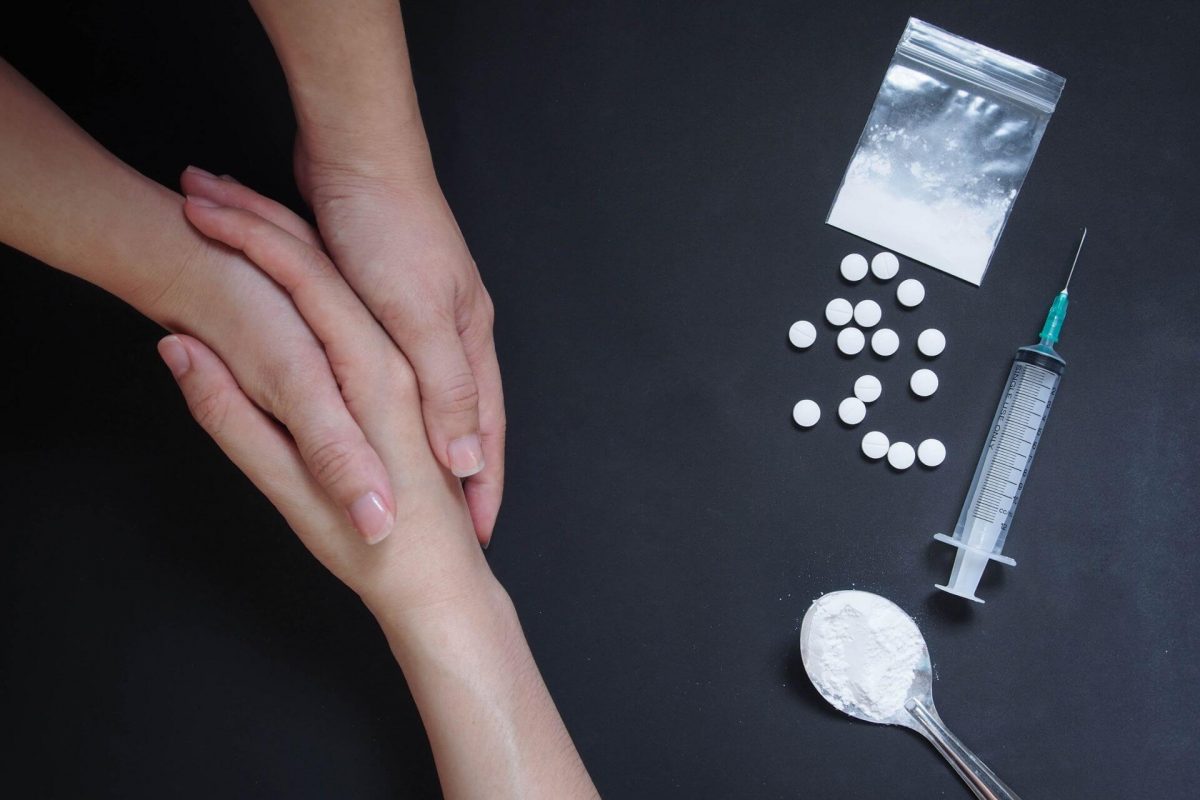Addiction is a complicated disease that requires a comprehensive treatment program to help people achieve and maintain lasting sobriety.
In theory, all this sounds simple enough – in an ideal world, a person enters rehab for 30, 60, or 90 days and comes out the other end “recovered”.
If only the addiction recovery process were that simple.
Addiction aftercare
Fortunately, most drug and alcohol rehabilitation centres provide individualised treatment programs that ensure treatment doesn’t just end once a person leaves rehab.
Continuing care or aftercare programs are a vital part of addiction treatment. Studies show that aftercare programs are linked to better patient outcomes.
Treatment for substance abuse

Addiction can be frustrating, confusing and complex, but treatment is available, and people can overcome substance misuse with proper support and intervention.
Researchers have extensively studied the various effects of addiction treatment on those suffering from substance abuse.
Essential learning from the literature was that when people receive tailored treatment that is extensively available, those with addiction are likely to experience better treatment outcomes.
Statistics on addiction treatment
Statistics show worryingly low figures for people seeking help for an addiction. Not enough people seek help and support for drug abuse or alcoholism.
According to a report by the Substance Abuse and Mental Health Services Administration, only approximately 11% of people who needed treatment for a substance use disorder received it.
Why is this?
Despite mental health and addiction awareness initiatives improving in the last decade, there’s still so much shame and stigma around addiction.
Those who abuse drugs and alcohol face these stigmas daily, which may prevent them from seeking the treatment they need and deserve.
Taking the first steps to recovery
Taking those first steps to recovery can be scary and confusing for those who already feel isolated in their addiction; it’s a huge step to take, and statistics show that many people never make the essential leap to recovery.
Although, fortunately, a proportion of the population with an alcohol or drug addiction manage to get help and support, if you have completed an initial addiction program, you must congratulate yourself for taking these initial steps.
Aftercare plan

However, treatment doesn’t stop once you complete a rehab program.
There’s still much work to do after you complete initial rehab. Recovery from substance abuse is not linear, and treatment doesn’t end after you complete detoxification.
The steps required to live an active, substance-free life are varied and require a lifelong commitment.
Aftercare program
A continuum of care after leaving rehabilitation is an essential part of addiction treatment, this type of care may include various therapies and support.
Many rehab facilities provide aftercare and support programs to patients after they leave rehab.
Contact the team at White River Manor for more information about our addiction treatment programs.
What does an aftercare program involve?
You may come across various terms, such as “aftercare” or “continuing care”.
These programs provide a continuum of care, allowing people to progress in their recovery after completing a formal addiction treatment program.
Some specialists may refer to aftercare programs as a type of “step-down” treatment after intensive residential treatment in an addiction facility.
What aftercare means
Again, there may be various definitions to describe aftercare.
But broadly, aftercare is a term used to describe any follow-up or ongoing treatment for substance addiction after a person completes a formal addiction treatment program.
The primary goals and objectives of an aftercare program
Most aftercare programs typically have similar goals and objectives.
No matter who treated you or what therapeutic approaches were used, aftercare programs usually involve the following:
- Assistance and support with developing new, healthy behaviour patterns
- Seeking ways to prevent relapse.
- Ongoing participation in the recovery process
- Maintaining recovery from substance addiction.
- Cultivating rewarding and uplifting relationships and support systems
- Support and assistance related to substance abuse recoveries, such as housing, employment and healthy relationships
Transitioning into the next phase of recovery
Addiction treatment centres provide step-down programs like aftercare or continuing care once you leave rehab.
These programs are designed to help you transition into the next subsequent recovery phase.
Treatment plan

You and your treatment team will collaborate to devise a plan suited to your needs and requirements.
Although treatment can vary – aftercare programs typically include the following:
- Therapy such as cognitive behaviour therapy or dialectical behaviour therapy
- Group therapy or support groups, such as 12-Step programs
- Medication
- Step-down treatment programs – for example, leaving intensive outpatient treatment to outpatient care and support.
- Housing assistance
Ultimately, the goal is to help you live a happy, healthy, substance-free life after rehab, which is possible with proper treatment and ongoing support.
Many studies show the effectiveness of aftercare programs, with reports indicating that a longer duration of continuing care can lead to better patient outcomes once a person leaves rehab.
How will I know if I need an aftercare program?
Aftercare plans allow your treatment team to monitor your progress and make any needed changes to your treatment plan after you leave an inpatient (or intensive outpatient) addiction program.
Engaging in an aftercare support program after completing formal addiction treatment in a residential facility can help you stay more engaged and connected in the recovery process.
Think of it as a continuum of care that provides ongoing support as you re-engage in ordinary life.
Having an aftercare plan in place may also reduce your chances of relapsing.
The research literature shows that discontinued care or no aftercare support for patients after they leave a rehab facility may put them at higher risk for relapse.
What does a good aftercare program entail?
Once you complete formal addiction treatment, you and your treatment team may begin focusing on creating an aftercare support program.
Your treatment team will likely consist of clinicians and specialists from a multidisciplinary background, such as medical staff, a therapist, a case manager, and a psychiatrist.
Your treatment team will take into account various aspects of your physical and mental health, treatment progress and other factors, such as:
- Medication needs for physical or mental health conditions
- The severity of your addiction and the type of substance being misused
- Social support systems such as family, friends, work or school
- Co-occurring disorders – your treatment team will consider additional mental health conditions that may co-occur with your substance addiction, such as anxiety or depression.
- Housing and employment needs
- Personal treatment preferences – your treatment team may ask whether you prefer group therapy or individual counselling.
Types of aftercare

Treatment and aftercare programs can vary depending on the severity and type of addiction.
Continuing programs can take various forms but are typically structured on what is appropriate for the individual – these are the next logical steps that help a person maintain abstinence.
For example, if a person completes a 30, 60, or 90-day inpatient addiction program, they will likely require more intensive forms of aftercare, which may include outpatient support.
On the other hand, a person completing an outpatient program may require less intensive treatment than someone who completes a 30 or 60-day inpatient program.
Treatment options for aftercare support may include:
- Treatment or support for co-occurring disorders – co-occurring disorders are mental health conditions that co-occur with a substance use disorder. For example, a person may require dual-diagnosis therapy for drug addiction and anxiety disorder.
- Therapy – treatments such as cognitive behavioural therapy or dialectical behaviour therapy can help those in recovery understand their addiction triggers and resolve any internal conflicts that may have led to substance abuse.
- Support groups – many rehab programs include mutual support groups which are also part of an aftercare plan – these programs involve sharing stories and progress with those who understand what it’s like to struggle with addiction. Support groups such as AA (alcoholics anonymous) and NA (Narcotics Anonymous) are the most common.
Additional support
Additional aftercare support may also include medication assistance and recovery housing.
How effective is aftercare?
Like any chronic disease, addiction is a complex condition with no cure.
However, the absence of treatment (or ineffective treatment) is associated with increased symptoms and more frequent relapse occurrences.
There is always a chance of relapse, even after someone has treatment – studies show that approximately 40-60% of people relapse after addiction treatment.
That said, people must understand that relapse is often a part of recovery, and it does not mean that your treatment was unsuccessful.
Studies show that people who engage in more extended rehab addiction programs are more likely to experience better results.
These findings suggest that the length of treatment is more important than the type of treatment.
For example, studies show that those who enter rehab for drug addiction need at least 90 days of treatment to achieve long-lasting abstinence.
Finding recovery at White River Manor
If you (or someone close to you) are suffering from a substance addiction, support and help are available.
Our team can treat and diagnose various addictions and co-occurring disorders, such as drug and alcohol addiction, and other mental health conditions like anxiety and depression that often co-occur with substance abuse.
Addiction can be an isolating disease, but you are not alone. Our friendly, compassionate team is always available to lend a supportive ear.
Call or send us an email and begin your journey to recovery today.
Additional resources
- After Rehab: 5 Ways for Addicts to Cope & Avoid Relapse, Psychology Today, Seth Meyers, Psy.D., April 16, 2012
- Recovery from Addiction, Psychology Today, John F. Kelly PhD., ABPP, December 30, 2019

